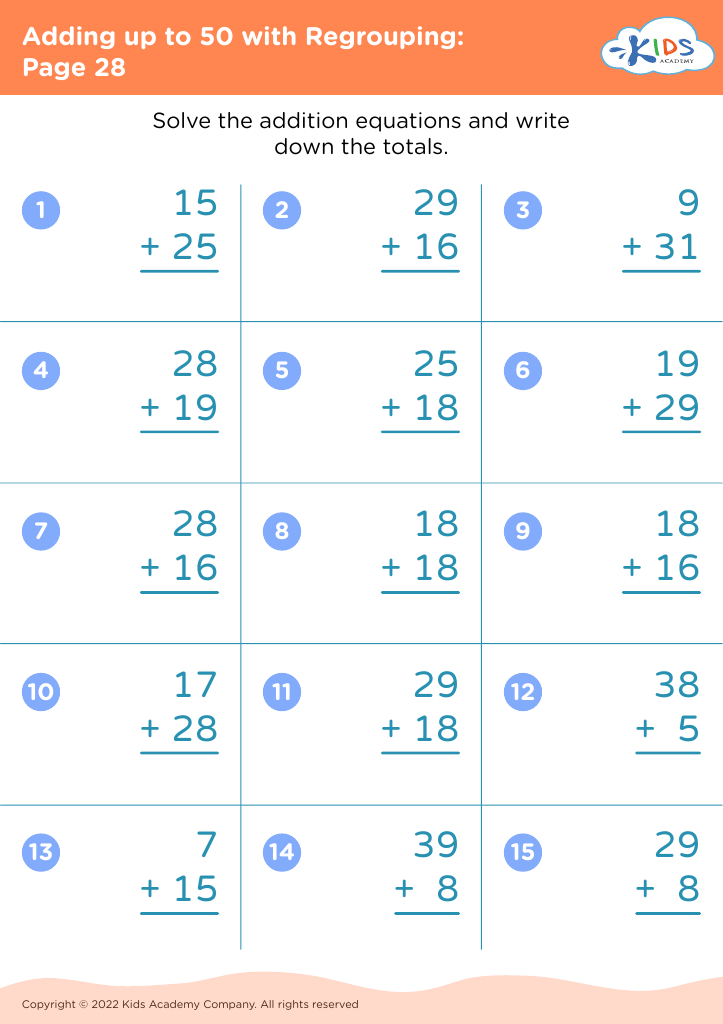Subtraction skills Adding up to 50 Worksheets for Ages 8-9
3 filtered results
-
From - To
Enhance your child's subtraction skills with our engaging "Subtraction Skills Adding up to 50 Worksheets" designed specifically for ages 8-9. These worksheets provide a variety of fun exercises that help students practice and master subtraction concepts that reinforce their math foundation. With relatable themes and interactive problems, children will enjoy learning as they tackle equations involving numbers up to 50. Watch as they gain confidence in their math abilities and develop critical thinking skills with each worksheet. Ideal for classroom use or at-home learning, these resources make subtraction practice exciting and effective. Boost your child's math journey today!
Subtraction skills, particularly with numbers adding up to 50, are crucial for children aged 8 to 9 as they form a foundational component of their mathematical understanding. Mastery of these skills enhances problem-solving abilities, enabling children to tackle more complex arithmetic that they will encounter later in their education. At this age, students begin to transition from concrete manipulations to abstract reasoning, making it the perfect time to solidify their understanding of subtraction.
Moreover, proficient subtraction skills are vital for real-life applications. Whether calculating change during shopping, measuring ingredients for recipes, or estimating distances during outings, these skills are used daily in practical contexts. Additionally, strong subtraction abilities boost children’s confidence and engagement in mathematics. A child who can successfully navigate subtraction problems is likely to be more motivated to tackle challenge-filled curricula and develop a positive attitude toward learning.
Teachers and parents play a pivotal role in fostering these skills through supportive learning environments, and targeted practice can significantly enhance a child's capability. By prioritizing subtraction skills, adults can ensure that children build a solid mathematical foundation that will benefit them throughout their academic journey and life beyond.
















